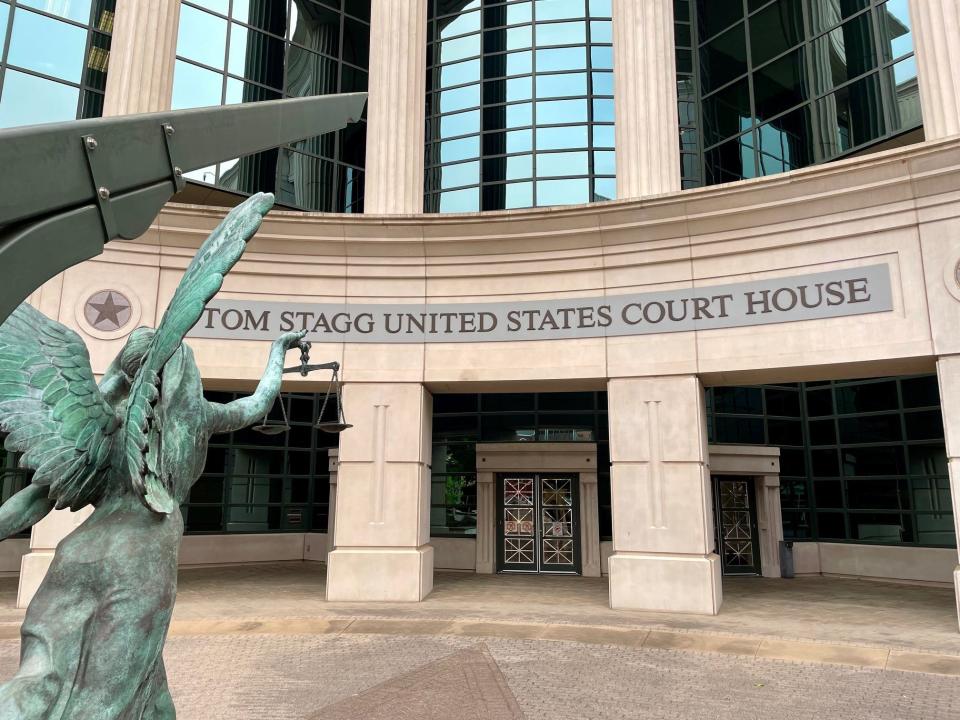Election chaos in Louisiana as only state without a congressional map for fall ballot
A federal court panel's divided decision to throw out Louisiana's congressional boundaries has left the state without a map to hold the Nov. 5 election and less than two weeks to produce one before the state's chief elections officer's deadline to conduct a fall ballot.
The three-judge panel issued a 2-1 decision Tuesday ruling Louisiana's congressional map creating a second Black majority district was unconstitutional because of “an impermissible racial gerrymander,” siding with the plantiffs who sued to block the boundaries.
U.S. Western District Judges Robert Summerhays and David Joseph, both nominated by President Trump, sided with the plaintiffs. Fifth Circuit Court of Appeals Judge Carl Stewart, nominated by President Bill Clinton, dissented.
The court has scheduled a status conference at 10:30 a.m. May 6 to discuss what's next for the state and intervenors who defended the map and the plaintiffs who successfully challenged it.
Louisiana Attorney General Liz Murrill told USA Today Network Thursday she expects to file a motion with the panel by Friday to permit the state to implement the rejected map pending an appeal of its verdict to the U.S. Supreme Court.
Meanwhile, the NAACP Legal Defense Fund, a group of Black voters and other civic organizations have already filed a notice of appeal with the U.S. Supreme Court asking it to allow the rejected map to remain in place as an emergency remedy for the 2024 election until a new map can clear the courts.
The NAACP Legal Defense fund will also enter Monday's hearing with its own preferred map that would create a second majority Black district.
"We will continue fighting on all fronts for a map that has two majority Black district as a matter of fair and constitutional representation as we have been for the past two years," NAACP Legal Defense Fund attorney Jared Evans told USA Today Network.

Evans said he doesn't believe two weeks is enough time for the panel or Louisiana Legislature to craft a new map, which is why the intervenors have asked the Supreme Court to allow the rejected map to be implemented for the 2024 elections only.
"Louisiana is the only state that doesn't have a congressional map," he said. "This is an emergency."
But Paul Hurd, an attorney with the plaintiffs who will likely have their own map to submit, dismissed those concerns.
"With the technology we have today we can draw a map in 4 hours," Hurd said. "We can definitely deliver an answer by (Louisiana Secretary of State Nancy Landry's) May 15 deadline.
"I think we're right on schedule, but we'll find out Monday. If the court asks for proposals I'm sure we'll have one."
The federal panel could also commission what's known as a special master to draw a new map it finds acceptable.
At stake are the political careers of the incumbents and scope of representation for the state's Black voters.
The plaintiffs successfully challenged the map by attacking the new majority Black 6th Congressional District boundaries stretching from Baton Rouge to Lafayette to Alexandria to Shreveport as unconstitutional, arguing they they didn't meet traditional redistriction principles like compactness and preserving communities of interests.
The state contended additional factors drove the map, including the politics of protecting powerful incumbent Louisiana Republicans U.S. House Speaker Mike Johnson (4th District), Majority Leader Steve Scalise (1st District) and Julia Letlow (5th District), a member of the Appropriations Committee that controls the country's pursestrings.
Doing so put Republican U.S. Rep. Graves, the current 6th District congressman, in peril by dismantling his boundaries in favor of a majority Black voter population.
The lawsuit was just the latest litigation challenging the state's ever-shifting congressional boundaries since the 2020 U.S. census.
Late last year a federal appeals court signaled it would uphold Baton Rouge Middle District Judge Shelly Dick's earlier ruling requiring Louisiana's previous congressional map be redrawn to include a second majority Black district out of six to comply with the Voting Rights Act.
The Republican-dominated Legislature complied and new GOP Gov. Jeff Landry signed into law the newest map in January, only to have it thrown out this week by the three-judge panel after a three-day trial in Shreveport in early April.
More: Federal judges throw out Louisiana congressional map with second Black District
Greg Hilburn covers state politics for the USA TODAY Network of Louisiana. Follow him on Twitter @GregHilburn1.
This article originally appeared on Shreveport Times: Louisiana doesn't have congressional map to conduct election: What's next?

